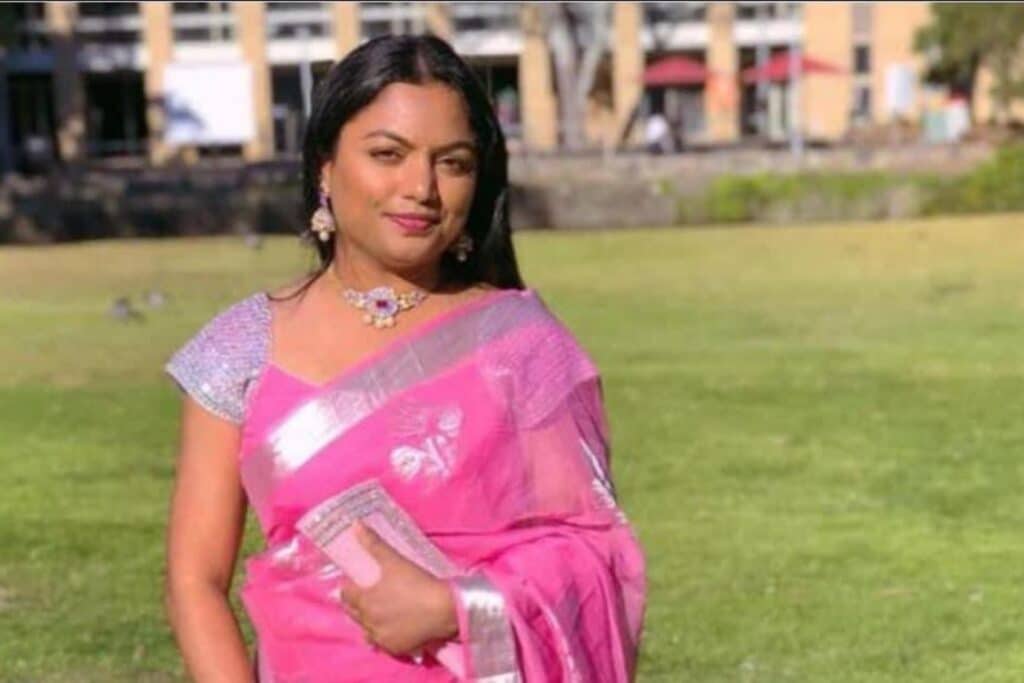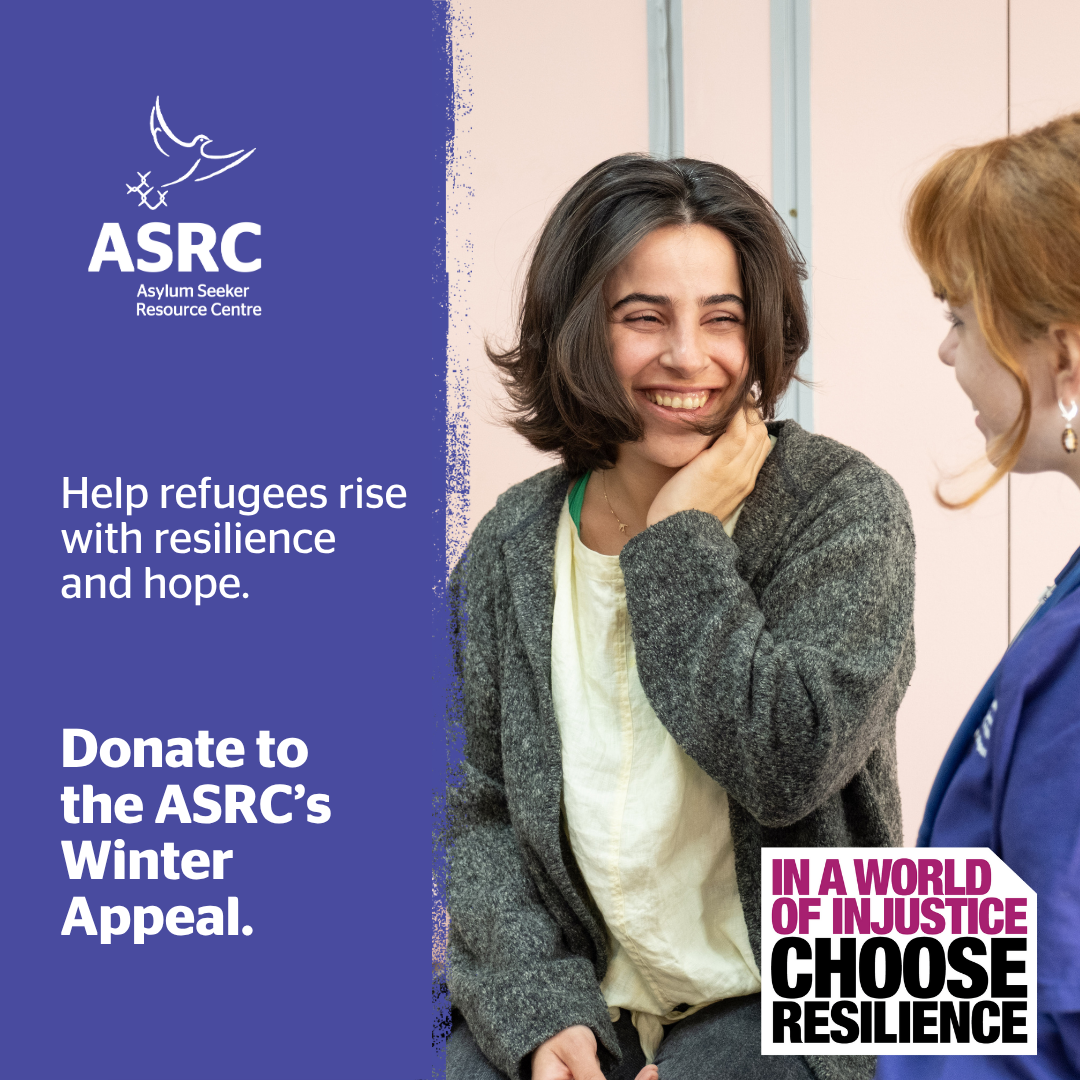The murder of Chaithanya ‘Swetha’ Madhagani, a migrant Indian woman from Point Cook in Victoria and originally from Hyderabad, allegedly by her husband, is a sad and a distressing event.
Tragically, we hear about such murders almost once a week. This year, about 14 women have already been killed. No race or colour is spared. It is a cultural problem of gender norms that perpetuate inequality and a power imbalance between men and women.
We recognise the individual tragedy of Swetha‘s death. She was not just a statistic or a headline; she was a human being with hopes, dreams, and aspirations, a loving mother, a worker, a neighbour, a friend. Her life was cut short in a senseless act of violence, leaving behind grieving loved ones and shattered communities.
The issue of gender-based violence is global and cuts across all societies and social classes. Globally 1 in 3 women have suffered one episode of abuse and/or violence from their intimate partner. Family violence murders continues to afflict societies worldwide.
A murder does not happen out of the blue. For a murder to occur there has to be a background of coercion, control, threats, fear, and previous attacks of physical violence over a prolonged period.
Beyond the individual tragedy, however, this incident also highlights broader systemic issues that contribute to gender-based violence. In many societies, including Australia, India, and others, patriarchal norms and attitudes perpetuate unequal power dynamics between men and women. These dynamics often manifest in various forms of violence and discrimination against women, including domestic violence, honour killings, and dowry-related crimes.
It is essential we explore the broader implications of such incidents in our community, the cultural and societal factors contributing to them, and the urgent need for meaningful action to address this pressing issue.
I started work in this area in 2009. The silence on the issue of family domestic violence was profound. Any advocacy that occurred took place in absolute silence, with an air of secrecy. People were afraid to speak out. With our first community participatory theatre Ghughat in 2010-11, we raised awareness and opened up conversations. Overnight a large number of NGOs started working in this space within the Indian community. Everybody became an expert in domestic violence. It was good that a lot of people took leadership role, but what was not helpful was for people to declare themselves experts without training and the knowledge of when to refer the person to the experts. I saw examples of women delayed the right help for months, exposing them to dangerous situations.
While progress has been made in raising awareness and implementing legal frameworks to protect women’s rights, incidents like the one involving Swetha’s alleged murder and other migrant women serve as stark reminders that much more needs to be done.
Over the years my team at our organisation the AustralAsain Centre for Human Rights and Health have conducted about 10 big projects since 2012, each lasting 1-3 years. We have conducted about 500 workshops, appeared in countless media interviews and educational programs, educated the community into prevention and early intervention and help seeking. Our research is published in academic journals. Recently I wrote a book Daughter of Durga published by the esteemed Melbourne University Press. I will share some key findings that are particularly relevant to the Indian and the broader South Asian migrant community.
We find that emotional violence and abuse is one of the most common forms of domestic violence described by our participants. Emotional violence is described as taking different forms, such as lack of control and being dominated. We found that there is a generally accepted and reinforced inequality between Indian men and women, and a lack of freedom in decision-making for women. The use of abusive language towards women, including verbal threats and threats of deportation and cancellation of immigration visas are common.
The big issue we find is that of the enforced silence. One woman said “The silence kills. I used to listen to my husband, then my mother-in-law and now even my son. I’m listening for 3 generations.“
We found social abuse is common, as identified by participants: “Society abuse is the biggest abuse in India community. The fear of society never makes you change the things that are happening in your life.”
Another big factor we discovered is a sense of entitlement and abuse related to money. The control of the money that women earn, and the lack of acceptance of a woman’s financial independency leads to violence. In 2010, our research found that Dowry abuse was rife. Australian-Indian grooms place pressures on their new brides, wives, and their family, for instance: “my son is in Australia, he has a PR, drives a BMW, you pay this much money to get your daughter there in Australia and your daughter will have to do this and this for my son.”
Other additional challenges include language barriers, lack of awareness about available resources, and fear of deportation or retaliation from perpetrators, fear of societal rejection, stigma, shame of speaking out. These factors further isolate migrant women and inhibit their ability to seek help or support.
In my psychiatric practice I have seen hundreds of victim-survivors of family violence as patients. I saw dowry abuse described by patients first in 2008. We know of one murder in Australia for “insufficient cash” paid by her father before, during and after the six years of her marriage. That was Deepshikha Godara. I can reveal that her father worked with us tirelessly in 2014-15 to get laws against dowry abuse in Victoria. We were successful and now we are poised to make it a national law. Our campaign against dowry abuse has helped the service providers, police, the courts, the politicians, and the victims. A number of universities and school students have written projects and are now are doing PhDs, and masters thesis on the topic. Prior to our campaign, there was no recognition of dowry violence. Now the victims know that they can speak about it, and they will be heard.
So what do we need to do to stop the senseless killings of women? Addressing gender-based violence requires a multi-faceted approach that addresses its root causes while providing comprehensive support to survivors. Next steps should include:
Legislative and policy reforms
Governments must enact and enforce laws that criminalise coercive control, demands for dowry, theft of women’s wages or jewellery for personal gain. Additionally, policies should be implemented to protect the rights of migrant women and provide them with free access to legal and support services irrespective of owning a property, or savings in the bank.
Education and awareness
We conduct regular workshops of “Mutual Relational Respect” that educate about patriarchal attitudes and promote gender equality, early help seeking and by-stander approach. Happily, Victorian government is doing this work in schools as well. We need such workshops for new migrants funded by the government.
Support services
Special refuges that are culturally nuanced are needed.
Training for professionals
Law enforcement officials, healthcare providers, and other professionals should receive training on identifying and responding to gender-based violence. This includes understanding the unique challenges faced by migrant women and ensuring that services are provided in a non-discriminatory and culturally competent manner.
Community engagement
More funding to engage communities in efforts to prevent gender-based violence is essential. Education in economic empowerment programs should be accessible, culturally sensitive, and tailored to the specific needs of migrant women and other marginalised groups. This includes working with religious and community leaders to challenge harmful norms and promote gender equality, as well as empowering grassroots organisations to provide support and advocacy for survivors.
Ultimately, addressing gender-based violence requires a collective effort from governments, civil society organizations, communities, and individuals. It’s not enough to simply condemn individual acts of violence; we must also work to dismantle the structures and systems that perpetuate gender inequality and discrimination.
As we reflect on this heartbreaking incident, let us honour the memory of the woman who lost her life and reaffirm our commitment to building a world where such tragedies are no longer a reality. The time for action is now.
If you or someone you know is experiencing, or at risk of experiencing, domestic, family or sexual violence, call 1800RESPECT on 1800 737 732, text 0458 737 732 or visit 1800RESPECT.org.au for online chat and video call services.
If you are concerned about your behaviour or use of violence, you can contact the Men’s Referral Service on 1300 766 491 or visit http://www.ntv.org.au.


